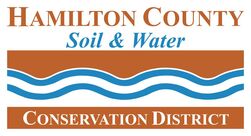COVID-19 Garden Vegetable to Food Pantry Donation Guidelines
The statements below only serve as guidelines for considerations. What we know about Covid-19 is continually changing. Please consult with food pantries to determine the best procedures for limiting the spread of COVID-19. This document was last updated on May 5th, 2020 and is subject to change. Check back at this website to for changes to these guidelines.
Facts about the SARS-CoV-2 Virus that Causes COVID-19
Before Donating
Harvesting
Donating
Facts about the SARS-CoV-2 Virus that Causes COVID-19
- It is most likely transmitted person to person through respiratory droplets, which is why 6- foot physical distancing is so important.
- There is no evidence that the virus can be transmitted by food.
- It can persist on surfaces for between 24-72 hours which is why sanitation of commonly touched surfaces is important.
- Risks from touching surfaces can be significantly reduced by frequent hand-washing, use of hand sanitizers, and avoiding touching the face.
- Cloth face coverings can reduce spreading of the virus by those who may be infected but are not showing symptoms.
Before Donating
- To limit the amount of times the produce is handled, donating directly to a food pantry, rather than to a food bank, is advisable for individual gardeners who donate their garden vegetables.
- Check to see if your food pantry of choice is accepting garden vegetable donations during this time. Our most recent list of food pantries that have historically accepted produce can be found here.
- Call the food pantry ahead of time to determine exact details of drop-off location and time.
- Determine if the food pantry would prefer vegetables washed prior to donation or if they can be accepted as is.
- Limiting the amount of times the produce is touched, assuming safe harvesting methods are adhered, until the produce arrives within the recipients home, is advisable.
Harvesting
- Do not harvest if you are experiencing symptoms of COVID-19. Maybe ask a friend to do it for you.
- Prior to harvesting, wash your hands with soap and or sanitize.
- During harvesting, wear sanitized gardening gloves (or unused latex gloves) and facemask or face guard. Do not touch your face with your hands then touch the produce.
- Place produce within clean, sanitized, and washed receptacles (e.g. unused and new plastic bags).
Donating
- Drop off the produce at the designated location then immediately step away more than six feet before the staff retrieves the food. Both parties should be wearing gloves and face masks.
